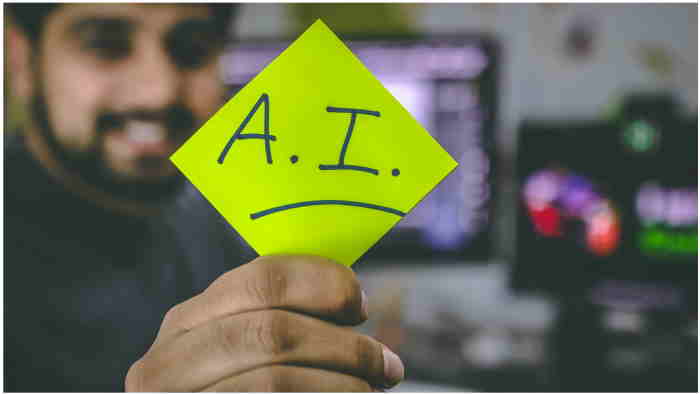Top 10 Artificial Intelligence and Machine Learning in Software Applications
Artificial Intelligence’s (AIML) utility and appeal are growing every day. (AI) Artificial intelligence refers to a system’s or program’s ability to learn and think from its experiences. AI has advanced dramatically in recent years, and it now has applications in practically every business industry. Most of the industries are adopting this technology at a faster pace. Hence, this domain is perceived as one of the fastest growing. Considering this demand, many are aspiring to pursue Artificial Intelligence courses to land in the career roles of AI.
This post will teach you about the most popular AI applications.
The following are the issues that would be discussed in the article on the applications of artificial intelligence:
- What exactly is (AI) Artificial Intelligence, and how does it work?
- Figures and Facts about Artificial Intelligence
- Applications of Artificial Intelligence

Artificial Intelligence (AI) and how does it work?
(AI) Artificial Intelligence is a type of computer intelligence that mimics human thinking or behaviour and may be educated to solve issues. AI (Artificial Intelligence) is a combination of Deep Learning and Machine Learning approaches. AI algorithms that have been trained with large amounts of data may make intelligent judgements.
Figures and Facts about Artificial Intelligence:
- The Global Artificial Intelligence (AI) Market is predicted to generate a revenue of 118 billion dollars by the year 2025, according to Tractica, a market research organisation.
- According to Gartner, Thirty-Seven per cent of companies have deployed (AI) Artificial Intelligence in some manner. Over the last four years, the number of businesses using AI has increased by 270 per cent.
- AI will fuel 95 percent of interactions from the customer by 2025, according to Servion Global Solutions.
- According to Statista’s latest estimate for 2020, the global AI software industry is predicted to increase by 54 per cent year over year, reaching a forecast value of 22.6 billion US dollars.
Let’s have a look at how Artificial Intelligence (AI) is employed in many fields. You can opt for an AI and Machine Learning course in Bangalore to get in-depth knowledge and implement capstone projects on Artificial Intelligence and Machine Learning in Software Applications.
Applications of Artificial Intelligence
-
E-Commerce and Artificial Intelligence:
Shopping that is customized:
Artificial Intelligence (AI) is used to construct recommendation engines that help you engage with the customers more effectively. These suggestions are based on their previous browsing preferences, interests, and behaviour. It aids in the improvement of your consumer interaction as well as brand loyalty.
Assistants with Artificial Intelligence:
Chatbots and virtual shopping assistants aid in the enhancement of the online buying experience. (NLP) Natural Language Processing is utilised to make the dialogue sound more personal and human. Furthermore, the AI assistants can interact with your consumers in real-time. Did you have any idea that virtual shopping assistants and chatbots may soon handle customer care on Amazon?
Preventing Fraud:
A couple of the most severe difficulties Electronic Commerce businesses face are credit card fraud and fraudulent reviews. Artificial Intelligence (AI) can help lower the risk of fraud on credit cards by considering usage trends. Many buyers choose to acquire a service or product based on what other people have said about it. Artificial intelligence can assist in detecting and dealing with fraudulent reviews.
-
Navigation with Artificial Intelligence:
According to MIT research, Global Positioning System (GPS) technology can give users precise, timely, and thorough information that can help them stay safer. The system combines a Graph Neural Network and a Convolutional Neural Network to make users’ life easier by automatically determining the number of road types and lanes behind road barriers. Uber and several logistics companies utilise artificial intelligence to increase traffic, operational efficiency, and optimise routes.
-
Robotics and Artificial Intelligence:
Another industry where (AI) artificial intelligence applications are widely used is robotics. AI-powered robots employ updates to detect obstructions in their path and instantaneously arrange their route.
It can also be used for a variety of purposes, including:
- Providing goods in factories, hospitals, and warehouses
- Cleaning massive equipment and offices
- Management of inventory
-
Artificial Intelligence in Human Resources:
Did you know about the fact that intelligent software is used by businesses to make the process of hiring easier?
Blind hiring can be aided by artificial intelligence. You can assess applications depending on specified parameters using machine learning tools. Recruiters can use AI-driven systems to analyse job seekers’ resumes and profiles to get a sense of the talent from which to choose.
-
Artificial Intelligence in the field of Healthcare:
Artificial intelligence (AI) has a wide range of uses in the field of healthcare. In healthcare, AI is being utilised to create powerful machines that can detect or identify diseases and cancer cells. To ensure prior diagnosis, artificial intelligence (AI) can assist in analysing chronic illnesses using the lab and some of the other medical data. To discover or identify new medications, AI combines a combination of medical knowledge and historical data.
-
Agriculture and Artificial Intelligence:
To detect flaws and nutrient deficits in the ground and soil, Artificial Intelligence is applied. AI can analyse where weeds are growing using robotics, computer vision, and machine learning. Artificial intelligence bots can assist in harvesting crops at a bigger volume and quicker rate than human labour.
-
Gaming with Artificial Intelligence:
The gaming industry is another area where (AI) Artificial Intelligence applications have gained traction. To interact with the players, AI could be employed to generate human-like intelligence.
It can also predict and observe human behaviour, which can help with testing and game design. AI stalks the player throughout the games like ‘Alien Isolation,’ which was launched in 2014. The game employs a couple of Artificial Intelligence (AI) systems: the ‘Director AI,’ which is constantly aware of your whereabouts. The ‘Alien AI,’ guided by behaviours and sensors, is continually looking for any player.
-
Automobile Artificial Intelligence:
Self-driving automobiles are built using artificial intelligence. AI could be combined with the radar, camera, GPS, cloud services, and control signals to drive the vehicle. AI can enhance the in-vehicle experience by adding features like emergency blind-spot monitoring, braking, and steering aid.
-
Artificial Intelligence in Social Media:
Instagram:
On the social media platform of Instagram, AI considers your interests and the account or accounts that you wish to follow to select which posts appear in the Explore tab.
Facebook:
AI (Artificial Intelligence) is being employed, as well as a technique known as DeepText. Facebook can better interpret discussions using this technology. It may also be used to translate posts between languages automatically.
Twitter:
Twitter uses AI for propaganda removal, fraud detection, and content removal. Twitter also uses AI to suggest tweets to users depending on the types of tweets or statements they engage with.
-
Marketing with Artificial Intelligence:
Artificial intelligence (AI) applications are also prevalent in marketing.
- With behavioural analysis, pattern recognition, and other AI tools, marketers could deliver highly targeted and personalised ads. It also aids in retargeting viewers at the appropriate time, ensuring greater outcomes and a reduction in emotions of distrust and frustration.
- AI can assist content marketing in a manner that is consistent with the brand’s voice and style. It could be used for a variety of purposes, including campaign reports, performance, and more.
- Chatbots that use Natural Language Generation, AI, Natural Language Understanding, and Natural Language Processing can analyse a user’s language and answer in human-like ways.
- AI can personalise content for users in real-time, depending on their actions. It may also be utilised to alter and optimise campaigns to meet the needs of a particular market.
Conclusion:
With its applications, Artificial Intelligence (AI) is transforming industries and assisting in resolving complicated problems. We can use AI to create intelligent systems that will assist us in enterprises and workplaces, and at home. From setting the alarm to turning on/off the lights, smart systems can help us with various chores. But in order to properly understand the complexities involved in using AIML, we will need to push our knowledge to the next level.
Gathering or collecting data from several portals becomes considerably more accessible with the help of AI. We can use Machine Learning to apply different algorithms to data to get it in the format we need.
We get recommendations depending on what we see or buy when online shopping. As a result, more business will be generated. All of this is feasible because of artificial intelligence (Machine Learning and Deep Learning).
When you want to buy something, you usually go to the relevant website to obtain support through an online chat or talking window that is always open. AI is the only reason this assistance is available 24 hours a day, seven days a week (Chatbot).






